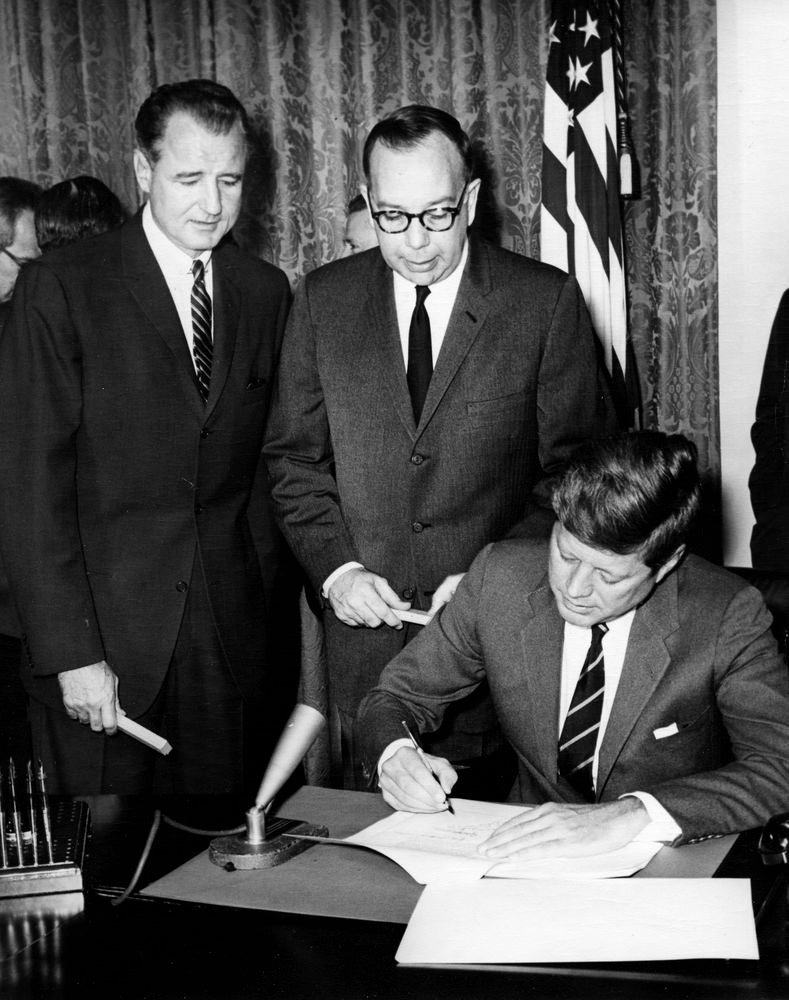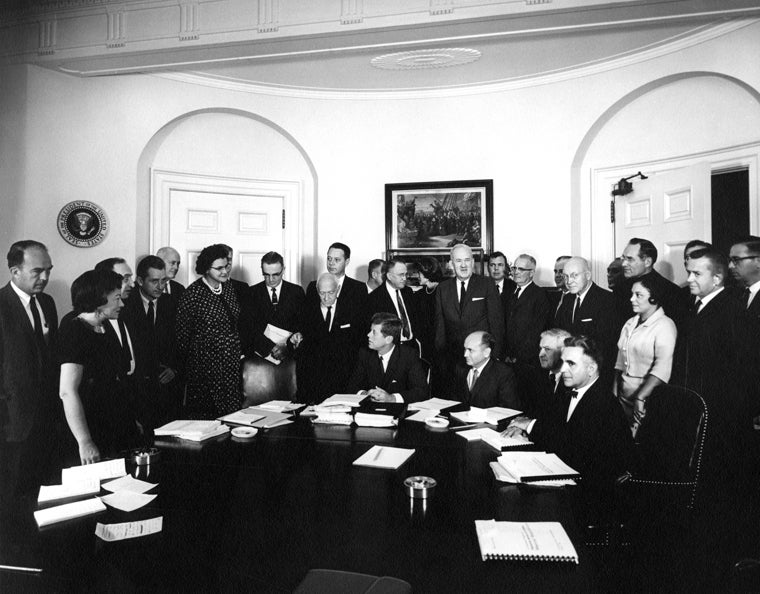The Center on Human Development (CHD) at the University of Oregon (UO) is dedicated to research, training, and outreach to support individuals with disabilities, their families, and communities. Our efforts cross the lifespan and include projects focusing on early intervention, k-12 schooling, adult transition and aging.
The Birth of UCEDD

President John F. Kennedy signing the act to authorize UCEDD.
The CHD is home to the University Center on Excellence on Developmental Disabilities (UCEDD) at the University of Oregon. The first university-based entities for individuals with developmental disabilities were authorized in Title 1, Part B of Public Law 88-164. This Act was signed into law on October 31, 1963, by President John F. Kennedy, just 22 days before he was assassinated.
Prior to signing this act, President Kennedy created the first President's Panel on Mental Retardation which authored a report that was among the most comprehensive, multifaceted, and well researched documents in the disability field of the time. The concept of these university-based facilities for people with developmental disabilities came from the recommendations addressed in the Panel's report.
To learn more download the UCEDD FactSheet.
The time has come for a bold new approach. New medical, scientific, and social tools and insights are now available.
— John F. Kennedy, February 5, 1963
A Bold New Approach
The concept of additional support for higher education in the field of disabilities was stimulated by the possibility of federal funds for campus facilities to conduct research and provide training and clinical services.
The UO's UCEDD is one of 68 University Centers for Excellence in Developmental Disabilities. Centers work with people with disabilities, members of their families, state and local government agencies, and community providers on providing training, technical assistance, research, and information sharing with a focus on building the capacity of communities to sustain all their citizens.
Many issues, such as early intervention, health care, community-based services, inclusive and meaningful education, transition from school to work, employment, housing, assistive technology, and transportation have been directly benefited from UCEDD efforts. Core funding for the center is provided by the Administration on Intellectual and Developmental Disabilities (AIDD).

President Kennedy and the panel of scientists, doctors and other professionals charged with a plan of action in the field of disabilities.
UCEDD in the 21st Century
The national network of 68 University Centers for Excellence in Developmental Disabilities (UCEDDs) improves services for the most vulnerable people in the United States. The UCEDDs address the complex needs of disabled individuals across the lifespan with wide-ranging positive impact on families and communities.
The federal investment in the UCEDD network by the Administration on Intellectual and Developmental Disabilities results in research-informed policies and practices that ultimately reduces reliance on social service systems and develops the individual's ability to contribute through purposeful work.
UCEDDs contribute to national disability research and also work in collaboration with other state agencies to create lasting change to improve the lives of disabled people throughout the nation.
